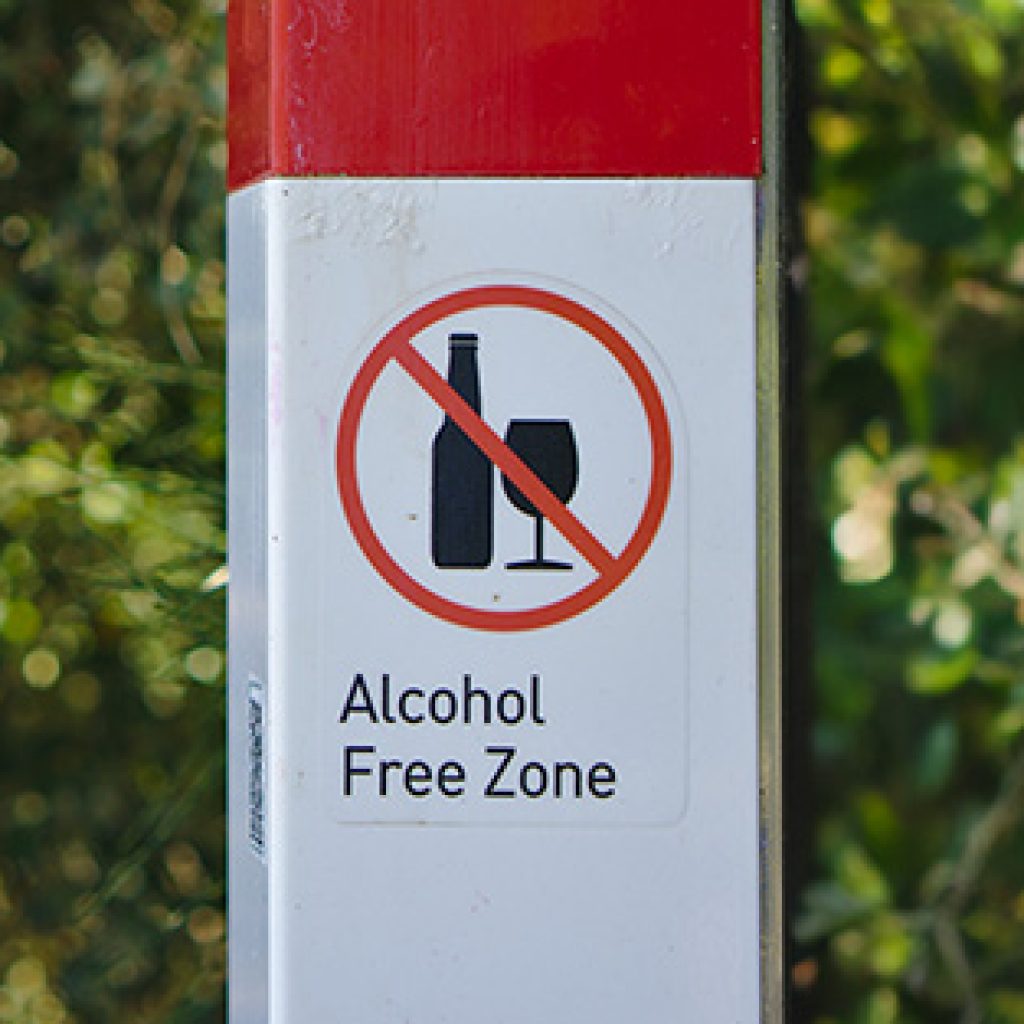National Conference on Gambling Addiction & Responsible Gambling “Better Together”
National Conference on Gambling Addiction & Responsible Gambling
If you have not registered for the 36th annual National Conference on Gambling Addiction & Responsible Gambling that begins on July 20, 2022, do not worry; it is not too late. Registration for this online event will be available until the final day of the event, July 23, 2022.
Why This Is Important
The importance of learning more about gambling disorder and of becoming a state certified treatment provider cannot be understated due to what the data say about who is at risk for gambling disorder. The Catalyst blog post “What Are the Odds Your Mental Health Client in Nevada Has a Gambling Problem?” reviewed some of the predictors for gambling disorder. Gambling disorder is associated with impulsiveness, anxiety, and depression, with the most impulsive 25% of respondents having triple the gambling disorder symptoms compared to the 25% least impulsive. Those diagnosed with depression had twice the rate of gambling disorder symptoms (Welte et al., 2017). The National Epidemiologic Survey on Alcohol and Related Conditions (NESARC) found that nearly 73.2% of pathological gamblers had an alcohol use disorder and 50.8% had a personality disorder (Petry et al., 2005). The implications for behavioral health providers include the need for screening and assessment for all clients, particularly those diagnosed with substance use disorder, and mood, anxiety, and personality disorders, due to the high rate of comorbidity with gambling disorder. Waiting until a client initiates a conversation about gambling disorder should not be an option as clients are not likely to do so due to stigma, lack of perceived need for treatment, and the belief that treatment for gambling disorder is not effective. In the Catalyst blog post “A Beginner’s Guide to Gambling and Opioid Use Disorder for Behavioral Health Providers” the following reasons cited by adults who did not receive mental health care constitute just some of the barriers to treatment of comorbidities:
- 52.2% said they could not afford the cost.
- 23.8% said they did not know where to go for treatment.
- 23.0% said they could handle the problem without treatment.
- 13.6% said they feared being committed.
- 12.4% said it might cause their neighbors to have a negative opinion of them.
- 11.1% said they did not think treatment would help.
- 10.6% said they did not have the time.
- 10.1% said they were concerned about confidentiality.
The following are some of the ways behavioral health providers can prevent undiagnosed gambling disorder comorbidity:
- Know what Gambling Disorder is from a mental health perspective. Most people understand that gambling disorder involves betting something of value on a game of chance. While most people think of casinos, slot machines, and card games as “gambling,” fewer people -even some professionals- are aware that bingo, lottery tickets, and even the stock market can be considered gambling and can result in significant impact on the lives of those who gamble, their loved ones, and their friends. Criteria developed in the DSM 5 can help define and identify Gambling Disorder.
- Screen your clients for gambling disorder. Regularly. Research shows that gambling disorder may not evolve until the person is well into recovery from another behavioral health disorder. Therefore, screening in the initial stages of treatment, which is very important for determining co-occurring disorders, is not enough (Crockford and El-Guebaly, 1998; Cunningham-Williams, et al, 2000). Screening provides an opportunity to refer the person who meets initial criteria to a trained clinical professional for a face-to-face evaluation. This year’s Gambling Disorder Screening Day is March 8, 2022.
- Use recommended Screening Tools. Many have been developed for initial screening for gambling disorder, such as the Brief Biosocial Gambling Screen (BBGS), the DSM-5 Gambling Disorder Criteria, and the NORC Diagnostic Screen for Gambling Problems Self-administered (NODS-SA). Additional information on screening tools can be found in the Gambling Disorder Screening Day Toolkit that was developed for the NCPG by Cambridge Health Alliance Division on Addiction.
- Advocate for programs and services that will help those with gambling disorder and their loved ones and friends. If advocacy is unfamiliar to you, join with others who “know the ropes” such as the NCPG. You may even decide to attend Problem Gambling Advocacy Day, in Washington, DC to become more engaged, network with other advocates, and educate federal legislators about gambling disorder.
- Educate clients and others in your practice or other spheres where you have influence by making information available and bringing it to the level of conversation in the course of your daily work activities. This can be as simple as providing a list of NCPG resources or by contacting your State Affiliate for state-specific resources, self-help resources, support resources for family and friends, and treatment resources.
How To Get State-Certified
The new flowcharts for choosing a pathway to Certification as a Problem Gambling Counselor in Nevada make it easy to understand the process and follow the same type of process as becoming an LADC, LCADC, CADC, or CADC-I in Nevada. The acronyms are fully decoded with descriptions of the process and links to appropriate websites in the Catalyst blog post “Choose Your Pathway To An LADC, LCADC, CADC, CADC-I, or a Certified Problem Gambling Counselor in Nevada: Featuring Brand-New Flowcharts for Each!” To learn about obtaining a Certified Prevention Specialist (CPS) certification in Nevada, first read the Catalyst blog post Prevention Specialist Certification: What Is It and Why Do I Need It? 10 Reasons to Become a Certified Prevention Specialist. If you are interested in becoming a problem gambling peer support specialist, the process is explained in the Catalyst blog post “Problem Gambling Peer Support Specialist: Is It Right for You?”. In either case, CEUs will be required both for initial certification as well as for re-certification. And that is where the National Conference on Gambling Addiction & Responsible Gambling (and other training opportunities) come in. This year’s main conference will be held online July 14-15 & 21-22. The conference theme is “Embracing Change Together”, and sessions will focus on changes that have occurred during the pandemic in help-seeking behaviors, receiving help, and in the delivery of responsible gambling and prevention programs. Available conference tracks include Treatment, Recovery, Prevention, Community, Military & Veterans, Tribal, Sports Betting, and Responsible Gambling & Regulation, and session descriptions/abstracts and speaker bios are available. Participants can earn 4 CEUs per day up to 16 total. Workshops will be presented using a Zoom platform allowing direct interaction and seats for track are limited for that interaction to work. Examples of available presentations include:
- Gambling Treatment Diversion Court: Where Justice and Treatment Meet on Problem Gambling – Stefanie Hui; Cheryl Moss, JD
- Young Adults and Gambling During the COVID-19 Pandemic: Results From a Longitudinal Survey of Ontario Gamblers – Sasha Stark, PhD
- Community Readiness: Measuring Outcome Driven Change! – Roxann Jones; Jessica Palma
- Remembrance of Things Past in Problem Gambling with An Eye Toward the Future – Tim Fong, MD
- Are We Meeting Them Where They Are or Is This Just Talk?: Diversity, Inclusion and Equity in Community Gambling Wellness – Deborah Haskins, PhD, ICGC-II, BACC; Roger Trott; Luis Del Orbe
- The U.S. Military and Problem Gambling: How to Care for the Troops and Improve Military Readiness in a Challenging Environment – Patrick Kelly; Jonathan Heller
If you have not yet decided if you want to pursue certification, the conference provides a great opportunity to explore the topic of gambling disorder to help you decide what is the right path for you! Listen to a personal invitation to last year’s conference from NCPG Executive Director Keith Whyte.
Additional Training and Resources
CASAT Learning currently offers the following self-paced, online courses on Problem Gambling:
- Problem Gambling Intern Readiness
- Gambling Disorder Overview
- Stress, Coping, and Suicidality in Problem Gamblers
- Gambling and Opioid Use Disorder: Intersections and Integration
- Gambling Problems in US Military Veterans
- Problem Gambling 101 for Peer Support Specialists
The CASAT OnDemand Calendar has a wondrous array of upcoming events, conferences and trainings and is also a great place to post your or your organization’s own events to get the word out to the behavioral health community. CASAT OnDemand’s Resources page offers additional Problem Gambling Resources.
The Addiction Technology Transfer Center Network (ATTC) provides a variety of references and resources in an overview on issues facing gambling disorder within the field of addiction entitled: “Shedding Light on Gambling Disorder as an Addiction: A Guide for Practitioners.”
If you are state-certified, what words of wisdom do you have for those considering it? Please share your thoughts in the comments below.
Additional References on Gambling Disorder
Alegría AA, Petry NM, Hasin DS, et al. Disordered gambling among racial and ethnic groups in the US: Results from the National Epidemiologic Survey on Alcohol and Related Conditions. CNS Spectrum. 2009;14(3):132–142.
American Psychiatric Association. Diagnostic and Statistical Manual of Mental Disorders: DSM-5. Washington, D.C: American Psychiatric; 2013, doi:10.1016/j.drugalcdep.2009.05.021.
Barnes GM, Welte JW, Hoffman JH, Tidwell M-CO. Comparisons of gambling and alcohol use among college students and noncollege young people in the United States. J Am Coll Health. 2010;58(5):443–452.
Barry DT, Stefanovics EA, Desai RA, Potenza MN. Differences in the Associations between Gambling Problem Severity and Psychiatric Disorders among Black and White Adults: Findings from the National Epidemiologic Survey on Alcohol and Related Conditions. Am J Addictions. 2011;20(1):69–77.
EMCDDA. (2015). Comorbidity of substance use and mental disorders in Europe, EMCDDA Insights, Publications Office of the European Union, Luxembourg.
Grall-Bronnec, M., Laforgue, E., Challet-Bouju, G., Cholet, J., Hardouin, J., Leboucher, J., . . . OPAL Grp. (2019). Prevalence of coaddictions and rate of successful treatment among a french sample of opioid-dependent patients with long-term opioid substitution therapy: The OPAL study. Frontiers in Psychiatry, 10 doi:10.3389/fpsyt.2019.00726 —Keywords: opioid use disorder, opioid substitution therapy, opioid use disorder treatment, coaddictions, problem gambling, unsuccessful treatment
Grant, J. E., & Chamberlain, S. R. (2020). Gambling and substance use: Comorbidity and treatment implications. Progress in Neuropsychopharmacology & Biological Psychiatry, 99, 109852. doi:10.1016/j.pnpbp.2019.109852
Han B, Compton WM, Blanco C, Colpe LJ. Prevalence, Treatment, And Unmet Treatment Needs Of US Adults With Mental Health And Substance Use Disorders. Health Aff Proj Hope. 2017;36(10):1739-1747. doi:10.1377/hlthaff.2017.0584
Kessler RC, Hwang I, LaBrie R, et al. DSM-IV pathological gambling in the National Comorbidity Survey Replication. Psychol Med. 2008;38(9):1351–60.
Petry NM, Stinson FS, Grant BF. Comorbidity of DSM-IV pathological gambling and other psychiatric disorders: results from the National Epidemiologic Survey on Alcohol and Related Conditions. J Clin Psychiatry. 2005;66(5):564–74.
Schwaninger, P. V., Mueller, S. E., Dittmann, R., Poespodihardjo, R., Vogel, M., Wiesbeck, G. A., . . . Petitjean, S. A. (2017). Patients with non‐substance‐related disorders report a similar profile of childhood trauma experiences compared to heroin‐dependent patients. The American Journal on Addictions, 26(3), 215-220. doi:10.1111/ajad.12512
Shaffer HJ, Hall MN, Vander Bilt J. Estimating the prevalence of disordered gambling behavior in the United States and Canada: a research synthesis. Am J Public Health. 1999;89(9):1369–76.
Substance Abuse and Mental Health Services Administration (SAMHSA). Key Substance Use and Mental Health Indicators in the United States: Results from the 2018 National Survey on Drug Use and Health. Rockville, MD: Center for Behavioral Health Statistics and Quality; 2019, https://www.samhsa.gov/data/.
The ASAM national practice guideline for the treatment of opioid use disorder: 2020 focused update. (2020). Journal of Addiction Medicine, 14, 1-91. doi:10.1097/ADM.0000000000000633
Welte, J. W., Barnes, G. M., Tidwell, M. O., & Wieczorek, W. F. (2017). Predictors of problem gambling in the U.S. Journal of Gambling Studies, 33(2), 327-342. doi:10.1007/s10899-016-9639-1
Blog Post Tags:
Related Blog Posts
Related Learning Labs
Related Resources
.
- Buscar Tratamiento de Calidad para Trastornos de uso de Sustancia (Finding Quality Treatment for Substance Use Disorders Spanish Version)
- Finding Quality Treatment for Substance Use Disorders
- Focus On Prevention: Strategies and Programs to Prevent Substance Use
- Monthly Variation in Substance Use Initiation Among Full-Time College Students
- The National Survey on Drug Use and Health (NSDUH) Report: Monthly Variation in Substance Use Initiation Among Adolescents









So sad I miss the conference 🙁 I’m a player for 2 years and I’m planning to slowly control my hobby and attending events and conference like this is my stepping stone. I hope I can this next year.
This content is Good and i think you can relate to my website which is Online Casino Game here in Philippines, Egames Online You can now Play and enjoy to win real money.
It is important for you know about the National Conference so that you have knowledge about and you can apply to yourself.
I’ve had nothing but a great experience with casino so far.
Especially in comparison to other online casinos they have been fair and easy to deal with. The game selection is pretty good. I haven’t any issues with connection or site use. Also, everything is easy to navigate.
this site is really amazing! kindly visit
Great structure to keep improving your game.
I have to admit I was hesitant to open an account with you but after being a client for over 2 months now I have not had a losing week. So far so good!!!
I am new here and hope we can get along very well indeed.
Continuing to run the casino and development, many successes and win new players.
In my opinion it is great casino with a lot of many games. I really like this casino. Very most diffrent games for any players. Cheers !
Your post is very helpful and the information is reliable.
Continued persistent work in satisfying us players.
Phenomenal blog. I delighted in researching your articles. This is to an extraordinary degree an amazing examined for me. I have bookmarked it and I am suspecting inspecting new articles. Continue doing shocking 바카라사이트
This surely helps me in my work. Lol, thanks for your comment! wink Glad you found it helpful. 슬롯사이트
Trying to say thank you won’t simply be adequate, for the astonishing lucidity in your article. I will legitimately get your RSS to remain educated regarding any updates. Wonderful work and much accomplishment in your business endeavors 뉴토끼